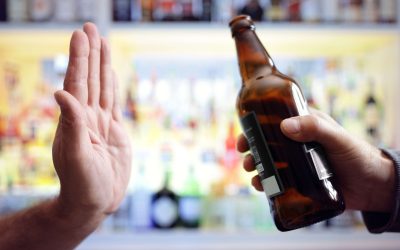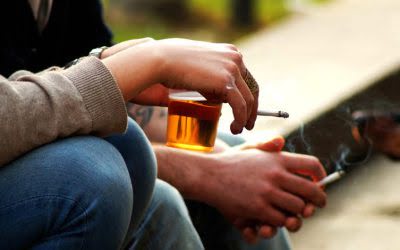Even making small changes in your daily life can help you live longer and better. In general, you can support your physical health by staying active, eating and sleeping well, and going to the doctor regularly. Take care of your mental health by interacting with family and friends, trying to stay positive, and participating in activities you enjoy. Taking steps to achieve better https://ecosoberhouse.com/ physical and mental health may reduce your risk for Alzheimer’s and related dementias as you age. Going to the doctor for regular health screenings is essential for healthy aging. A 2021 study found that getting regular check-ups helps doctors catch chronic diseases early and can help patients reduce risk factors for disease, such as high blood pressure and cholesterol levels.
Gateway understands how essential ongoing support is, and we provide that to our clients long after they’ve left our facilities. Lindsay Modglin is a nurse and professional writer who regularly writes about complex medical topics, as well as travel and the great outdoors. She holds a professional certificate in scientific writing from Stanford University School of Medicine and has contributed to many major publications including Insider and Verywell. As a passionate advocate for science-based content, she loves writing captivating material that supports scientific research and education.
Getting Treatment For Mental, Alcohol Issues
Some research has shown that drinking alcohol even six hours before bedtime can disrupt your sleep. So it’s a good idea to steer clear of alcohol for at least six hours before going to bed. Alcohol acts on your nervous system and causes brain activity to slow down. So you might find that drinking alcohol helps you to unwind and fall asleep more quickly. Getting regular, good-quality sleep (between seven to nine hours a night) improves how well you learn, remember information and helps you to live longer. It can also help reduce stress levels and maintain your emotional wellbeing.
- Disruptions to this hormone can lead to reduced quality sleep and cognitive difficulties.
- Treating anxiety can help reduce insomnia and improve overall sleep quality.
- If you do have an alcohol dependency, you should take the crucial step of seeking professional medical help to safely treat your AUD.
- A 2007 study published in Chronobiology International even found that a moderate amount of alcohol consumed an hour before bedtime reduced melatonin production.
- Simply cutting back or giving up alcohol or other drugs can be enough to reverse the negative impacts on your sleep (and can greatly improve your health overall).
It is never too late to stop smoking and reap the benefits of breathing easier, having more energy, saving money, and improving your health. Yet another eating pattern that may support healthy aging is the MIND diet, which combines a Mediterranean-style eating pattern with DASH. Researchers have found that people who closely follow the MIND diet have better overall cognition — the ability to clearly think, learn, and remember — compared to those with other eating styles. Some sleep-promoting drinks are high in compounds like tryptophan and melatonin, while others encourage sleep by easing pain and discomfort in the evenings.
How Long to Wait Between Drinking Alcohol and Bedtime
Reach out to friends and family who can help you cope in a positive way. One study found that among men 55 to 74 years old and women 60 to 74 years old, current smokers were three times more likely to die within the six-year follow-up period than those who had never smoked. Learn more about how to get a good night’s sleep and check out this infographic. Almonds have tryptophan and melatonin, while bananas boast muscle-relaxing potassium and magnesium. As long as you don’t have an allergy to bananas or almonds, a smoothie like this is a healthy and delicious way to end the day.

Even though alcohol may help you fall asleep, it interferes with the quality of your sleep. Experts also suggest building in a buffer zone of at least a few hours between drinking and bedtime. “It’s probably OK to have a glass of wine with dinner four hours before bed,” Dr. Abbott said. The gut and its microbiome are often referred to as the body’s second brain, and operate under powerful circadian rhythm activity. The circadian disruption that can result from alcohol consumption contributes to leaky gut syndrome, according to research. If your drinking is impacting your sleep or overall quality of life, you may want to make a change.
Taking care of your cognitive health
With extended use of alcohol over time, there can be long-term concerns, too. Many who abuse alcohol often do it well into the night and oversleep into the next day. In time this may lead to switching up day and night sleeping patterns. Then, as withdrawal from the drug or alcohol occurs there’s a big sleep-wake reversal which then needs to be addressed. They may turn to alcohol to reduce their anxiety symptoms, which also increases insomnia, exacerbating their anxious feelings. People with sleep apnea should consider avoiding or reducing alcohol consumption.

It also covers what symptoms you might have if you don’t wait long enough between having your last drink and going to bed. If you’re struggling to get enough quality rest, talk to a health care professional about ways to improve your sleep. Making a plan to focus on better sleep habits can help you feel your best and improve your overall health.
If you are concerned about what you eat, talk with your doctor about ways you can make better food choices. Since almond milk is made from whole almonds, it may also promote good sleep. Almond milk is high in sleep-promoting hormones and minerals, https://ecosoberhouse.com/article/alcohol-and-sleep-does-alcohol-help-you-sleep/ including tryptophan, melatonin, and magnesium. In fact, 1 cup (237 ml) of almond milk contains nearly 17 mg of magnesium (67, 68, 69). Unless you’re lactose intolerant or have a milk allergy, there’s no harm to giving this bedtime ritual a shot.
- Scientific evidence suggests that people who exercise regularly not only live longer, but also may live better — meaning they enjoy more years of life without pain or disability.
- If you think your drinking may be impeding your sleep or overall quality of life, speaking to your doctor or therapist is a great first step.
- In this article, we explore the sedative effects of alcohol and ways to avoid this from occurring.
- A recent study examined how levels of the stress hormone cortisol change over time.
- There’s a chance you’ll physically act out your dreams in your sleep, or even sleepwalk.
Another study in 80 women who experienced reduced sleep quality noted that physical symptoms of sleep inefficiency were significantly improved after participants drank chamomile tea daily for 2 weeks (16). Finally, one study noted that drinking 2 cups (480 ml) of cherry juice each day for 2 weeks increased total sleep time by 84 minutes and helped treat symptoms of insomnia in adults aged 50 and older (13). But even if you don’t have hours to spare, there are some basic steps you can take to be able to enjoy an adult beverage at night and still sleep like a baby afterward. REM, or rapid eye movement, is the stage of sleep that stimulates parts of the brain to help with memory consolidation and learning. Not getting enough REM sleep can contribute to further health issues, like depression and anxiety, and can increase your risk of developing dementia.
A person can speak with a doctor to discuss the best way to treat and manage their condition. Consuming alcohol may present a higher risk of developing sleep apnea. In a 2018 study, researchers found that alcohol increases this risk by 25%. If a person chooses to consume alcohol, drinking in moderation several hours before bed is the best practice for avoiding sleep disturbances.
- That’s because alcohol suppresses vasopressin, a hormone that regulates the amount of water absorbed by your kidneys.
- In other words, it can cause your body to dispel an extra measure of liquid.
- Alcohol has a direct effect on circadian rhythms, diminishing the ability of the master biological clock to respond to the light cues that keep it in sync.
- However, those who regularly engage in binge drinking are far more likely than those who do not to have trouble falling asleep at night.
- However, one study observed that large doses increased anxiety levels (20, 35, 36, 37).
- In severe instances, this can lead to dehydration, leaving you with nausea and a headache.
Circadian rhythms affect how the body responds to alcohol, depending on the timing of alcohol intake. Long-established research shows the body metabolizes alcohol differently at different times of day. Studies have shown the body is more effective at processing alcohol at certain times of the day than others. So while cutting out drinking will likely benefit your sleep, there may be other factors affecting your shuteye.
